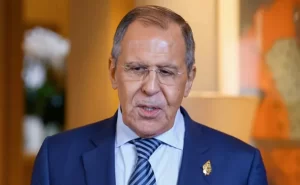Rosneft Russia refrained from signing a new crude oil agreement with two Indian state rectors, three sources with knowledge about the problem said, because they had made sales to other customers.
Indian rectors have taken cheap Russian oil, shunned by companies and Western countries since sanctions were imposed on Moscow for the Ukraine invasion on February 24, called Russia as “Special Military Operations”.
Lack of supply supply new terms with Rosneft can encourage Indian refiners to switch to the spot market for more expensive oil. This also shows that Russia has managed to continue to export its oil despite increasing pressure from Western sanctions to suffocate Moscow’s income.
Withdrawn on the discount offered, three Indian refineries – Indian Oil Corp, Bharat Petroleum Corp and Hindustan Petroleum – opened negotiations with Rosneft earlier this year for a six -month supply offer.
So far only IOC, the top of the country, signed an agreement with Rosneft, which will make him buy 6 million barrels of Russian oil every month, with an option to buy 3 million barrels more. Two other requests for two other squash have been rejected by Russian producers, the source said.
Rosneft is not committed to signing contracts with HPCL and BPCL. They say they have no volume, “said one source.
Rosneft, IOC, HPCL and BPCL did not respond to requests for Reuters’ comments.
Russia increases oil exports from the Kozmino Main Port by one fifth to meet the soaring demand from Asian buyers and offset the impact of European Union sanctions.
Trading sources said Rosneft pushed barrels to the market through trading companies such as Everest Energy, Coral Energy, Bellatrix and Sunrise.
Bellatrix and Sunrise are not available for comments, while Coral and Everest do not respond to Reuters’ emails asking for comments.
According to shipping data quoted by two traders in the Ural Market, the four trading companies act as suppliers of crude oil purchased from Rosneft to India.
China has also increased its purchase from Russia. Rosneft has given 900,000 tons (6.66 million barrels) from the loading of Espo crude oil in June to Uniipec, the best refinery trade arm as Asia Sinopec Corp, according to four traders.
Sources -Indian sources say Russian oil is no longer available at large discounts and they get less offers to be sold based on ports (DAP), international commercial terms where sellers pay insurance and shipping and ownership are transferred to buyers only after the cargo runs out.
Previously the company offered a good discount but it was not available now. The offer has been reduced and the discount is not as good as before, because the insurance and transportation rates have risen,” said another source.
The European Union, which together with the United Kingdom and the United States dominated the international marine market, last week announced the immediate ban on a new insurance contract for ships carrying Russian oil, and gave a grace period of six months for the existing contract.
The lack of shipping insurance protection has reached the purchase of Russian IOC oil based on a contract signed with Rosneft last year, said the source.
The contract gives an IOC option to buy 2 million tons of oil from Rosneft based on FREE (FOB), which requires buyers to rent a ship and pay insurance to load the cargo from Russia.
India is mostly buying Russian urral crude oil, but the latest IOC agreement includes the Espo Mixture inventory option from the Russian Kozmino port and the Sakhalin Sokol class as well, one of the sources said.
However, Indian squash continues to lift several volumes from the spot market, and HPCL and BPCL may get around 1 million-2 million barrels of Russian oil in July, the source said.






